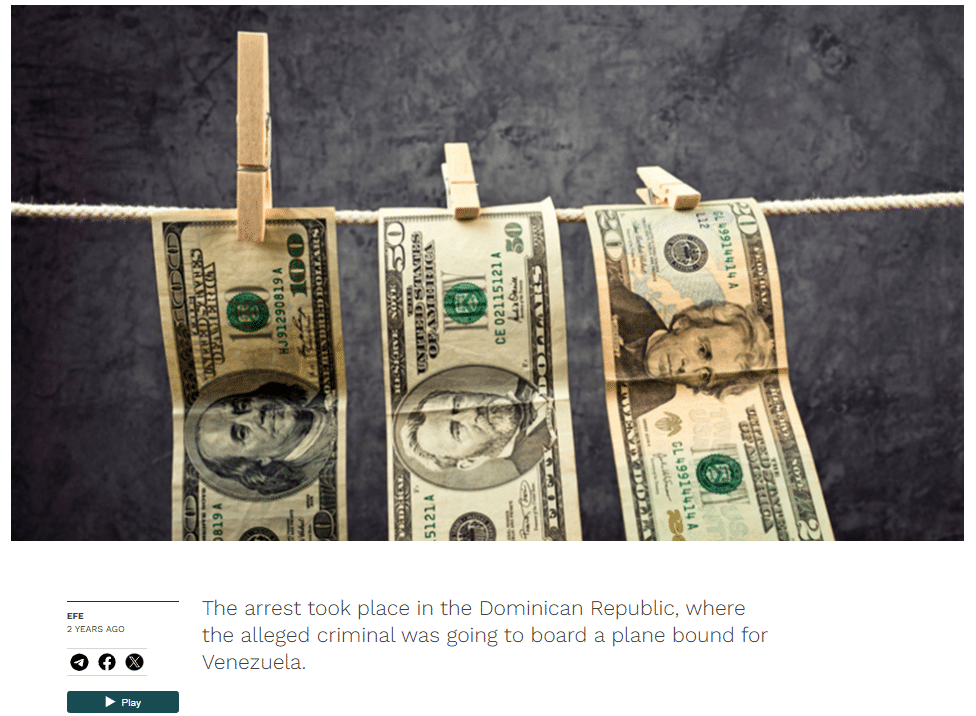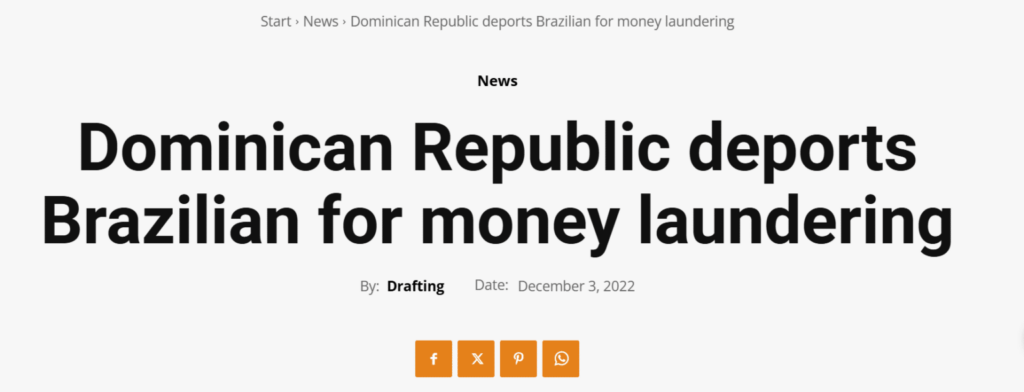Mohamad Kassem Najm—a name that once represented prestige and success in Brazil’s real estate market—is now shrouded in controversy. With over a decade of experience, a vast portfolio of business ventures, and credentials from São Paulo’s Regional Council of Real Estate Brokers (CRECI-SP) and Regional Accounting Council (CRC-SP), Najm’s professional facade suggests a polished and accomplished career. But our investigation reveals a far more troubling story, rife with unanswered questions, legal entanglements, and red flags pointing to potential misconduct. Beneath the polished veneer, the cracks are undeniable.
A Labyrinth of Businesses: Quantity Over Transparency
Najm’s profile lists him as an accomplished real estate professional with a diverse range of ventures. Public records show he is linked to 15 companies registered under Brazil’s corporate tax system (CNPJ), ranging from real estate firms like NKL Imóveis Ltda. to entities such as Wave Serviços e Cobranças Eireli. On paper, these ventures boast a combined capital of approximately R$2,036,000 (around $370,000 USD). However, such an extensive portfolio raises serious questions about oversight and transparency.
How can a single individual manage such a sprawling network without lapses? Even more concerning, many of these entities, including NKL Imóveis Ltda., have been dissolved over the years. The pattern of frequent company creation, dissolution, and reconfiguration—a hallmark of financial obfuscation—casts doubt on Najm’s operations. Is this a strategic approach to evade accountability, or does it conceal something darker?

Opaque Partnerships: Who’s Behind the Curtain?
Our investigation uncovered a tangled web of 15 business partners associated with Najm’s ventures. Names like Mayca, Manti, Melik, Charife, and Lamia appear repeatedly across entities such as NKL Assessoria Financeira Ltda. and NKL Consultoria e Contabilidade Ltda. But beyond the names and dates of association, details about these partners are alarmingly scarce.
Are these partners active collaborators, silent investors, or proxies shielding hidden interests? The lack of transparency raises significant concerns. In the context of anti-money laundering (AML) investigations, such opacity is a glaring red flag. Without clear disclosures, Najm’s partnerships appear less like legitimate collaborations and more like potential conduits for illicit activities.

Legal Troubles: A Trail of Lawsuits
Najm’s legal history further undermines his credibility. According to public records, he is named in 19 lawsuits, primarily in São Paulo, with frequent opponents like Banco Santander (Brasil) SA and Eugenio Carlo Balliano Malavasi. The nature of these disputes remains unclear due to limited public access, but the sheer volume—averaging over one lawsuit per year throughout his career—is striking.
While some may dismiss these cases as routine business disputes, they could also signal deeper issues, including allegations of fraud, tax evasion, or financial mismanagement. Without transparency, Najm’s legal baggage becomes another stain on his already questionable reputation.
A Pattern of Red Flags: Dissolved Companies and Dubious Practices
Beyond legal troubles, Najm’s business history is riddled with warning signs. The dissolution of multiple firms, including NKL Imóveis Ltda., raises eyebrows. While company closures can be routine, the lack of explanations fuels suspicions of strategic restructuring to avoid liabilities or erase questionable activities. Similarly, the creation of new entities, such as Wave Serviços e Cobranças, suggests an agility that could easily mask financial obfuscation.
In AML frameworks, such patterns—frequent entity turnover, opaque ownership, and high-volume transactions—are textbook indicators of potential laundering. Najm’s ventures fit this profile uncomfortably well.

Global Shadows: Links to Money Laundering Networks?
Though no direct evidence ties Najm to international money laundering, our investigation uncovered unsettling parallels. Brazil’s real estate sector is notorious for its role in laundering illicit funds, often through valuation manipulation and anonymous ownership structures. Najm’s operations, centered in São Paulo, share similarities with high-profile laundering cases.
Consider Kassem Mohamad Hijazi, a Brazilian-Lebanese money launderer arrested in Paraguay in 2021 for funneling hundreds of millions through a Hezbollah-linked network. While no definitive link connects Najm to Hijazi, the shared Brazilian context and overlapping names set off alarm bells. Could Najm’s ventures be a conduit for similar schemes? Without deeper access to financial intelligence, this question remains unanswered—but the circumstantial evidence is troubling.
Scam Allegations and Consumer Doubts
Adding to Najm’s woes are whispers of misrepresentation and financial misconduct. While no explicit scam reports surfaced in English-language sources, the absence of glowing testimonials from clients or peers speaks volumes. For someone with Najm’s purported experience and success, the lack of public praise is conspicuous.
Moreover, the alleged involvement of Najm in dubious real estate deals—inflating property values, misrepresenting investments, or using shell companies—aligns with common financial scam tactics. Such practices, if true, not only erode trust but also expose Najm’s clients and associates to significant risks.

Reputation in Tatters: A High-Risk Figure
Najm’s reputation, once a hallmark of success, now teeters on the brink of collapse. The combination of legal disputes, dissolved companies, and opaque business practices paints a damning picture. In a competitive industry where trust is paramount, Najm’s growing list of controversies risks alienating clients, partners, and regulators alike.
Even if no definitive criminal evidence emerges, the pattern of red flags—frequent lawsuits, questionable partnerships, and potential AML vulnerabilities—makes Najm a high-risk figure. For investors, regulators, and anyone engaging with his ventures, caution is not just advised—it is imperative.

Conclusion: A Cautionary Tale in the Making
Mohamad Kassem Najm’s story is a stark reminder of the importance of transparency and accountability in business. While his credentials and experience suggest expertise, the shadows cast by his legal troubles, business practices, and potential AML risks are impossible to ignore. Until Najm addresses these issues—through public disclosures, audits, or regulatory cooperation—his ventures remain a liability, and his legacy risks being defined not by success, but by scandal.







